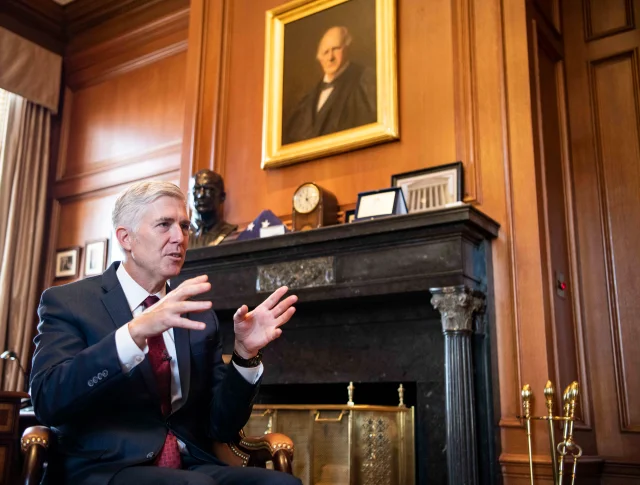
WASHINGTON – The Supreme Court ruled Thursday that the eastern half of Oklahoma can be considered Native American territory, a decision the state previously warned could create “civil, criminal and regulatory turmoil.”
The 5-4 decision was written by Associate Justice Neil Gorsuch and joined by the court’s four liberal justices. The justices were considering the issue for the second time after failing to decide a different case last year, when Gorsuch was recused and the court likely deadlocked.
The case concerned an appeal from Jimcy McGirt, a Native American, who claimed his state rape conviction from 1997 should be overturned because Oklahoma lacked jurisdiction. Congress, his lawyer Ian Gershengorn said, never properly terminated the reservation.
During oral arguments in May, the justices reached back to 1907 to determine whether Congress, using imprecise language, failed to disestablish the 1866 boundaries of the reservation.
If so, virtually half of Oklahoma – home to 1.8 million residents and including Tulsa, where President Donald Trump recently held a controversial campaign rally amid a global pandemic – would remain Native American territory. That means Native Americans are subject to federal, not state, laws.

The state’s solicitor general, Mithun Mansinghani, warned that could require the release of more than 1,700 inmates. That didn’t sit well with several justices who feared a chaotic overhaul of long-decided criminal cases.
“What makes this case hard is that there have been hundreds, hundreds of prosecutions, some very heinous offenses of the state law. On your view, they would all become undone,” Associate Justice Ruth Bader Ginsburg told Gershengorn.
“Won’t (residents) be surprised to learn that they are living on a reservation and that they are now subject to laws imposed by a body that is not accountable to them in any way?” Associate Justice Samuel Alito asked.
In the earlier case, the U.S. Court of Appeals for the 10th Circuit ruled the state lacked jurisdiction to prosecute a gruesome murder because it happened within 3 million acres belonging to the Muscogee (Creek) Nation. The ruling threatened more than 19 million acres in eastern Oklahoma once inhabited by five Native American tribes.
Yet many Oklahoma public officials, including Republican Rep. Tom Cole and former Democratic Gov. Brad Henry, urged the justices to rule in favor of the Native American tribes whose sovereignty they said has been good for the state.
“In one area after another – taxation, gaming, motor vehicle registration, law enforcement, and water rights – the Nations’ sovereignty within their reservations and the state’s recognition of that sovereignty have provided the framework for the negotiation of inter-governmental agreements that benefit all Oklahomans,” they said.
The Trump administration took the state’s side, telling the justices that Congress long ago broke up the Creek Nation’s lands, abolished its courts and set a timetable for the tribe’s dissolution.
Last year, 10 states from Maine to Texas to Montana warned that the boundaries of tribal lands have jurisdictional consequences there as well. They said a decision in the tribe’s favor “would be confusing and costly at best, and disastrous at worst,” affecting health and energy policy, environmental regulation, economic development and taxes.
*story by USA Today